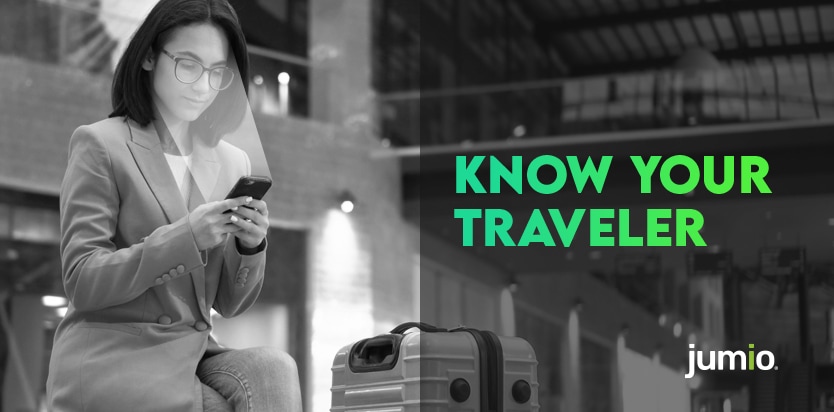
With the dramatic rise of criminals using generative AI to defraud companies, it’s not just banks and financial services organizations who are at risk. Companies in the travel and hospitality industry — and their customers — are increasingly suffering from fraud attacks. Meanwhile, 75% of travelers say they’d rather use biometrics in place of passports and boarding passes. As a result, businesses in the travel and hospitality industry are turning to biometric identity verification solutions to improve customer experience and reduce fraud.
For example, one of the world’s largest hotel groups wanted to improve customer experience by enabling their guests to quickly and easily make reservations and check in to their rooms without having to wait in line at the front desk. At the same time, they wanted to stop the rise in fraudsters making last-minute reservations online and checking into rooms using stolen IDs and credit cards.
Jumio Identity Verification has helped them to do both. By providing an automated, streamlined, and easy-to-use process that’s as simple as scanning their driver’s license and taking a selfie, travel and hospitality companies can check in their legitimate customers quickly and safely. And by using frictionless risk signals, businesses can dynamically introduce additional verification steps only as needed for users who are flagged as higher risk.
When to Implement Biometric Verification in the Travel and Hospitality User Journey
There are two key points in a user’s journey where you can reduce fraud: making a reservation and checking in. For maximum security and efficiency, you can use biometrics to verify their identity at both points.
When they make their reservation online, have customers enter the usual information such as their name and address. Then, you can seamlessly launch the identity verification journey, where they scan their ID and take a selfie. Our similarity check detects whether the person in the selfie is the same as the person on the ID. And our liveness detection technology ensures the selfie is of a real person, not a deepfake.
When they check in, your customer can use a kiosk or app on their mobile device to quickly take another selfie. The image is then compared with the selfie they took when they made the reservation. This biometric authentication step ensures the person checking in is the same person who made the reservation.
Using Risk Signals with Dynamic Workflows
Frictionless risk signals can run behind the scenes without the user needing to provide any additional information. For example, you can check the reputation of the device they’re using, whether the person actually lives at their stated address, how long they’ve had their email address, if the phone number has been used for previous fraud transactions, and much more.
If these checks increase the user’s risk score beyond a certain threshold, you can automatically trigger further verification steps. For example, you could prompt them to upload secondary documentation such as a utility bill as proof of address. Or you might stop the online journey and instruct them to speak to an agent. Risk signals are an excellent way to enhance your Know Your Customer (KYC) process without sacrificing customer experience.
Ready to Learn More?
Jumio has a wealth of experience to share with you:
- For an overview of Jumio’s solutions and how we help travel-related industries, see our Travel page.
- For a deeper dive into preventing fraud in the travel industry, download our ebook, Know Your Traveler: How to Establish Digital Trust in Travel & Hospitality.
- To learn more about using risk signals, check out our webinar, How Risk Signals Can Enhance ID Verification in the Travel and Hospitality Industry.
Or just contact us, and one of our solution experts will reach out to start a conversation about your needs for increasing customer satisfaction while reducing fraud.
Originally published May 15, 2023; updated May 22, 2024.
